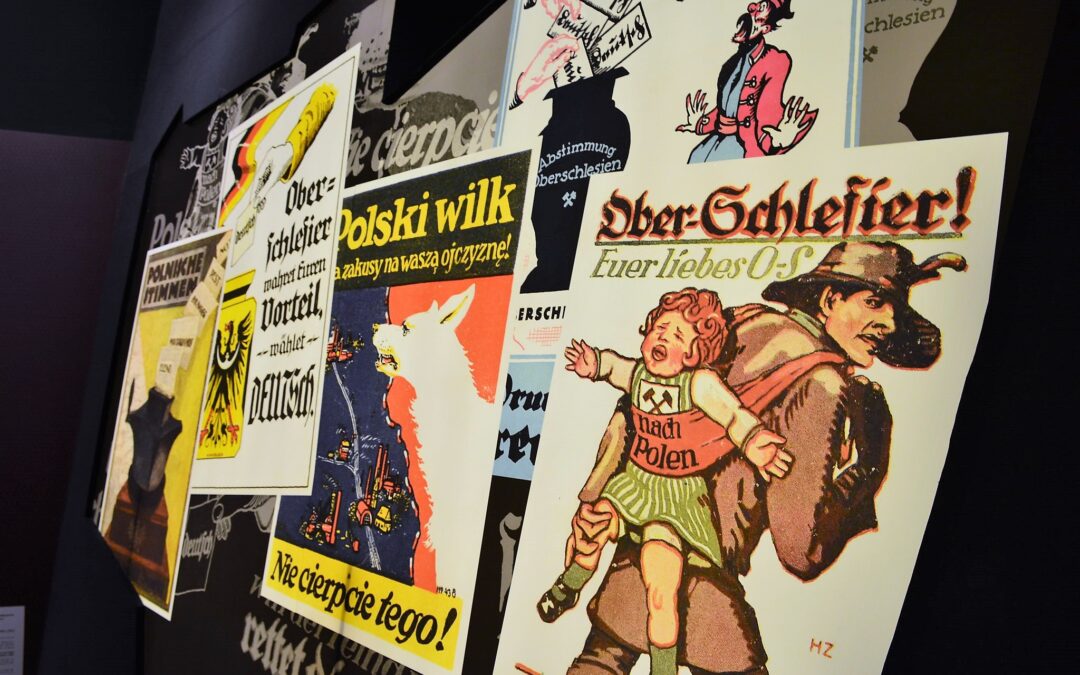Plans for a monument commemorating the Silesian uprising of 1921 – in which ethnic Poles sought to have the region transferred from Germany to the newly founded Polish Republic – have caused a dispute in Opole after a local organisation representing the German minority expressed opposition.
The Social-Cultural Society of Germans in Opole Silesia (TSKN) argues that a monument would give the impression that the descendants of those who fought against the uprisings, many of whom still live in the region, would no longer be welcome. TSKN has called for a monument to commemorate fighters from both sides of the conflict.
In response, the mayor of Opole – a city of 128,000 in southwest Poland – said he only wants to “commemorate the heroes of the Silesian uprisings” who fought for Poland, “and not those who shot at them”.
"Umarłych wieczność dotąd trwa, dokąd pamięcią im się płaci" W. Szymborska.
Na nowej części cmentarza komunalnego stanie pomnik będący hołdem dla uczestników III Powstania Śląskiego z powiatu opolskiego. Inicjatywa ta jest częścią opolskich obchodów 100-lecia powstania. pic.twitter.com/JthsMe27NQ— Arkadiusz Wiśniewski (@OPOLEPrezydent) March 25, 2021
The unveiling of the monument is set to be the main event at next month’s celebrations of the 100th anniversary of the conflict, which took place between May and July 1921 and was the third, last and longest of three Silesian uprisings between 1919 and 1921.
The uprisings involved skirmishes between ethnic Polish separatists and German police and paramilitary forces over contested land in Upper Silesia. In some cases, family members or close neighbours even fought on opposite sides of the conflict, notes Dziennik Gazata Prawna.
Following the third and final uprising, the Council of the League of Nations divided the area between the two countries, awarding Poland almost a third of the land, including key industrial centres, and half the population.
The uprisings are now seen as an important part of early twentieth century Polish history, and the planned monument aims to commemorate insurgents from the Opole district. Situated in the municipal cemetery, it includes the names of 67 people who were killed in the uprising.
However, the decision has been met with criticism from TSKN, the largest organisation of the German minority in Poland, which expressed “surprise” at the plans to celebrate “victims from only one side of the conflict, and in addition not from the city of Opole, but from the Opole district”.
“It would seem that 100 years after those tragic events is a sufficient period to honour all those who gave their lives at that time, regardless of their nationality,” the organisation wrote in a statement, adding that “the region and the city itself are today inhabited by descendants of both sides.”
In response, Opole’s mayor, Arkadiusz Wiśniewski, issued his own statement on Wednesday, saying that it would “never occur” to him to commemorate both sides of the uprisings.
“There are descendants of those who fought for Germany here,” he agreed. “However, this is not a sufficient reason to erect monuments to German soldiers.”
“Thinking along these lines, someone might think of erecting monuments to Wehrmacht soldiers here, because their descendants live in this region,” he added, referring to the armed forced of Nazi Germany, which invaded and occupied Poland in the Second World War.
Wiśniewski said that the German minority organisation has also previously opposed other plans to commemorate Poles. A few years ago, the organisation prevented the use of the Rodło emblem – a symbol of the Polish minority in Germany since the 1930s – in the district’s insignia.
However, Wiśniewski emphasised that the TSKN could commemorate the uprisings themselves, and that he wished for reconciliation between the parties in the future.
Following the mayor’s statement, TSKN chairman Rafał Bartek wrote on social media that he felt “victims of wars and conflicts should be remembered, regardless of their nationality”.
According to census data, around 148,000 ethnic Germans reside in Poland, almost half of whom declare both Polish and German ethnicity. Most live in Silesia, with the Opole district home to the largest German minority in the country.
In 2016, plans to incorporate 12 villages into Opole sparked a furore, with fears that the proportion of people of German origin would be reduced to such an extent that they would no longer be represented in the municipal council and German would no longer be considered an auxiliary language in administrative offices, reported Deutsche Welle.
Ethnic Germans also have a guaranteed seat in Poland’s national parliament, with candidates proposed by TSKN and the Social-Cultural Association of Germans in the Silesian district (DFK).
Main image credit: Marcin Polak/Flickr (under CC BY 2.0)

Juliette Bretan is a freelance journalist covering Polish and Eastern European current affairs and culture. Her work has featured on the BBC World Service, and in CityMetric, The Independent, Ozy, New Eastern Europe and Culture.pl.




















